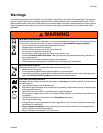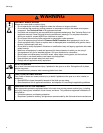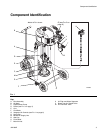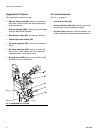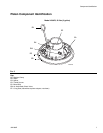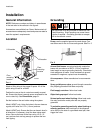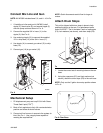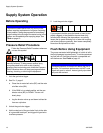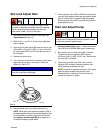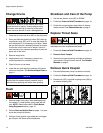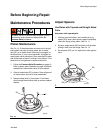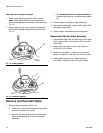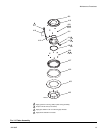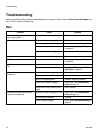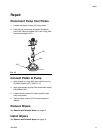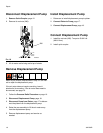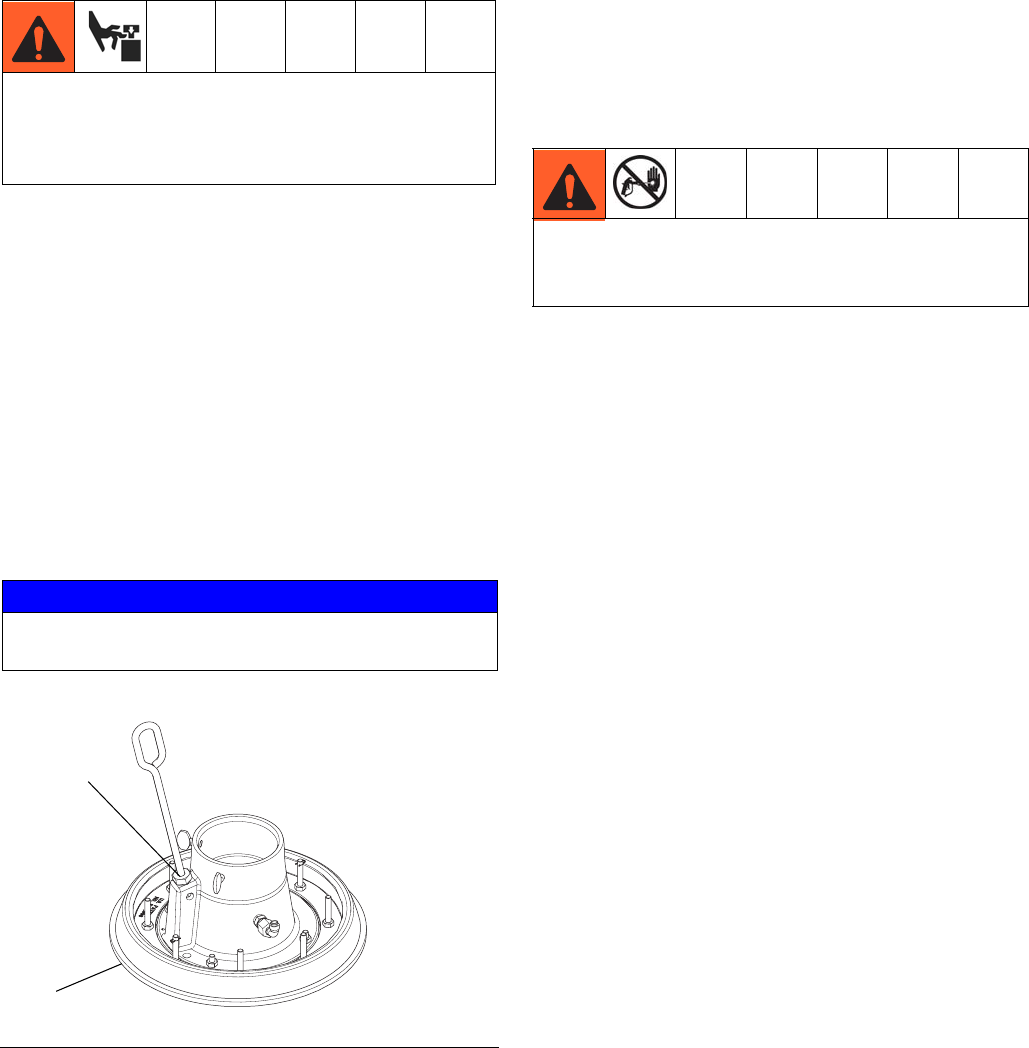
Supply System Operation
3A2798D 11
Start and Adjust Ram
1. Set platen configuration based on pail type (see
Adjust Spacers, page 13).
2. Refer to F
IG
. 1 and F
IG
. 2. Close all air regulators
and air valves.
3. Open main air slider valve (BA) and set ram air reg-
ulator (BB) to 45 psi (0.31 MPa, 3.1 bar). Set direc-
tor valve handle (BC) to UP and let the ram rise to
its full height.
4. Remove the drum cover.
5. Put a full drum of fluid on the ram base, slide it back
against the drum stops, and center it under the
platen (D). See F
IG
. 9.
6. Remove bleed stick from platen bleed port (J).
NOTE: Some pails may require the spacer (EG) to
be flipped upside down so the smaller diameter side
is on the bottom. If unable to get ram into the pail,
see Remove and Reinstall Wiper on page 14 to
re-install the spacer upside down.
7. Set the director valve (BC) to DOWN and lower the
ram until fluid appears at the top of the platen bleed
port (J). Adjust ram air regulator (BB) as needed.
Set the director valve (BC) to neutral and close the
platen bleed port (J).
Start and Adjust Pump
1. Start and Adjust Ram, page 11. Keep the director
valve (BC) set to DOWN while pump is operating.
2. Be sure the main air slider valve (BA) is closed.
Then set the ram air regulator (BB) to about
40-45 psi (0.28-3.1 MPa, 2.8-3.1 bar). Set the direc-
tor valve (BC) to DOWN.
3. Open main air slider valve (BA). Use air motor
regulator (BE) to slowly increase pressure until
pump operates at desired flow rate.
NOTE: Increase air pressure to the ram if the pump
does not prime properly with heavier fluids.
Decrease Ram air pressure if fluid is forced out
around the top seal or platen.
Moving parts can pinch or amputate fingers. When
the pump is operating and when raising or lowering
the ram, keep fingers and hands away from the
pump intake, platen, and lip of the drum.
NOTICE
To avoid damage to the platen seals, do not use a
drum that is dented or damaged.
F
IG
. 9
J
D
ti20247b
To prevent equipment rupture, be sure all
components are adequately sized and pressure rated
to meet the system’s requirements.



